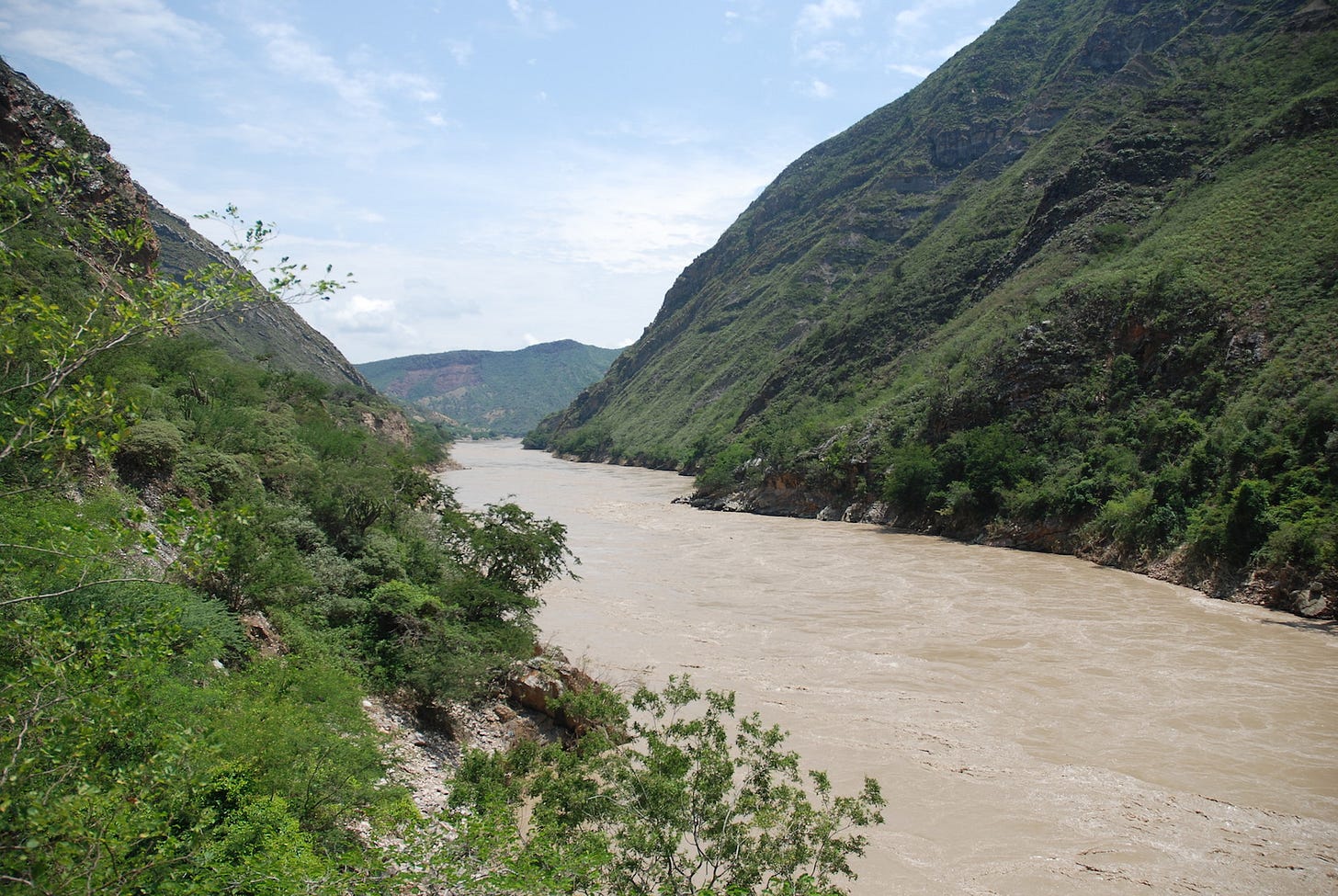Rights of Nature granted to one of the River Amazon’s main sources
Historic ruling issued in Peru after pioneering lawsuit filed by indigenous federation

Seven weeks ago I wrote an article on Substack titled ‘Will one of the River Amazon’s main sources be granted Rights of Nature?’ It was about a much-delayed, but hopefully-still-imminent ruling that was expected from a judge in a small town in the Peruvian Amazon, Nauta, as to whether the mighty River Marañon should be accorded rights or not.
The answer to that question, revealed this week, is an emphatic yes. According to the ruling, which Peruvian and international organisations supporting the case are calling “landmark” and “historic”, the Marañon has the right to flow, to be free from contamination, to provide a healthy ecosystem, to be fed by its tributaries, to be biodiverse, and to be able to regenerate through its natural cycles, among other things.
This means that the Marañon now joins an elite but ever-increasing group of rivers around the world which have been granted rights. The Whanganui on New Zealand’s North Island is one, the Atrato in north-west Colombia is another, the magnificent Magpie in Canada’s Quebec region a third. Indeed, in 2018, Colombia’s Constitutional Court declared the entire Colombian Amazon a “subject of rights” and therefore the “beneficiary of protection, conservation, maintenance and restoration” by the country’s national and local governments.
The Nauta ruling came after a lawsuit filed by an indigenous Kukama federation called Huaynakana Kamatahuara Kana (HKK) in 2021. One of the main reasons the Kukamas filed the lawsuit was in response to the oil spills that have plagued the Marañon and their river-dependent communities for decades, as well as other threats such as hydro-electric dam construction and gold-mining.
“The recognition of the rights of the Marañon River and the Indigenous communities as its guardians represents a very important step toward addressing the persistent threats to the river and is a significant milestone for Peru and for the global community that has closely followed the struggle of the Kukama people,” reads a statement by 12 Peruvian and international organisations, including the US-based Earth Law Centre, International Rivers and the Global Alliance for the Rights of Nature.
Maritza Quispe Mamani, HKK’s lawyer, from Peru’s Instituto de Defensa Legal (IDL), calls the ruling “transcendental” - and significant not just for the Kukamas and the Marañon, but for “all rivers contaminated by extractive activities.”
“It’s a very important sentence because it’s the first ruling in Peru that recognises that a river has rights - and not just any river, but the Marañon, which has suffered and continues to suffer from constant oil spills,” Quispe Mamani tells me. “It’s also important because it marks a turning-point in initiating a debate on the need to protect fresh water sources through a legal concept already recognised in other countries where the recognition of rivers as entities with rights has also been sought.”
How likely is it, though, the sentence will be appealed?
“It’s a first instance ruling,” Quispe Mamani says, “so it will most likely be appealed by Petroperu.”
For HKK’s president, Mariluz Canaquiri Murayari, the sentence is a victory “not just for the Kukama people”, but “the Amazon as a whole, Peru and the world.”
“This struggle, this achievement, is for everyone,” she tells me. “We depend on the rivers to exist - they’re part of our lives and territories. Without them, we couldn’t survive. For the Kukama people in particular, the River Marañon is sacred - it gives us food, it gives us water and it gives life to the trees, the forest and all the living beings in nature. Rivers are living beings and it’s for that reason they should have rights.”
The judge also ruled that indigenous organisations should have a decision-making role on a “Water Resources Council” that must be established by the regional government, and that indigenous organisations, together with certain state entities, should be named as “guardians, defenders and representatives” of the Marañon and its tributaries too. In addition, the ruling ordered state oil company Petroperu to update its Management Plan for the North Peruvian Oil Pipeline that has been responsible for so much of the damage done to the river over decades.
HKK’s Canaquiri Murayari is full of thanks for those who have supported the Kukama’s struggle - “the lawyers Juan Carlos Ruiz and Maritza Quispe from IDL, as well as other allies both national and international, particularly the lawyers who helped us with the amicus curiae” submitted to the judge.
“We truly feel like we’ve been listened to and appreciated,” she says. “And now, from this point on, we have the authority to sit down with state institutions, coordinate with them and decide, in the future, what we are going to do and how we can protect the river. We’re making history for future generations, so that they can continue this fight. Defending the Amazon is defending everybody’s common home.”
